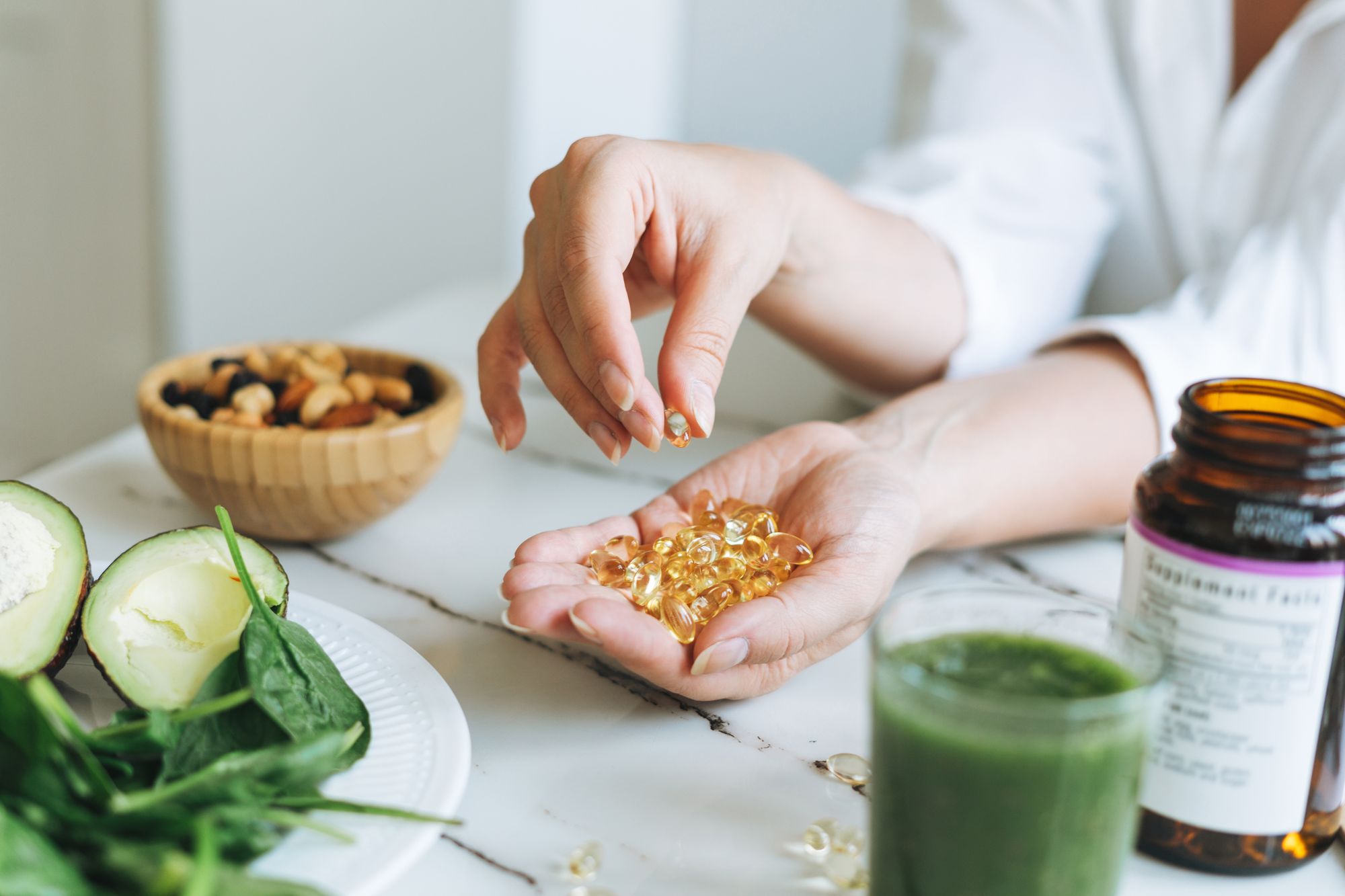When it comes to crafting a morning routine that sets the stage for a successful day, you probably have your habits well-established. From savoring herbal teas, iced matcha lattes, or fresh fruit smoothies to engaging in yoga or meditation, you've got it down to a science. Perhaps you venture out for a brisk walk or jog, or enjoy a rejuvenating stroll with your pup around the neighborhood. As part of your morning health regimen, you might also include vitamins and supplements to give yourself an extra boost.
In fact, according to Johns Hopkins Medicine, around 50% of American adults regularly use multivitamins or other types of vitamins. However, it's essential to discern which vitamins are truly worth your investment. To help you make informed choices, we spoke with an expert who reveals the top vitamins for women to take before reaching 40.
The biostation reports that nutrient deficiencies are prevalent in the United States, affecting 92% of the population to some extent, based on the Dietary Reference Intakes. The human body relies on 13 essential vitamins for optimal functioning, including vitamins A, C, D, E, and K, as well as the B vitamins (riboflavin, thiamine, biotin, vitamin B12, vitamin B6, folate, and pantothenic acid). While a well-balanced diet rich in vegetables, fruits, lean proteins, and whole grains can provide these vitamins, supplementation can be considered to ensure adequate intake.
To help you navigate this journey, we consulted with Lauren Manaker MS, RDN, LD, CLEC, an esteemed registered dietitian, book author, and recipe developer who sits on our Medical Expert Board. Manaker reveals the absolute best vitamins for women to begin taking before reaching 40. Read on to discover more about these essential nutrients and how they can support your well-being.
Sure! Let's delve into each of the essential vitamins mentioned in the context of women's health before turning 40, providing more details and information about their significance:
1) Folic Acid (Vitamin B9):

Folic acid, also known as vitamin B9, is a water-soluble vitamin that plays a crucial role in various bodily functions. One of its most well-known roles is supporting fetal development during pregnancy. Women of reproductive age are advised to consume 400 micrograms (mcg) of folic acid daily, especially before conception, to reduce the risk of neural tube defects and other birth defects in the baby.
Apart from its significance during pregnancy, folic acid is essential for DNA synthesis and repair, making it vital for cell division and growth. It also aids in the formation of red blood cells and helps prevent certain types of anemia. Additionally, folic acid works in conjunction with vitamins B12 and B6 to regulate homocysteine levels, an amino acid linked to cardiovascular health. Maintaining optimal homocysteine levels may reduce the risk of heart disease.
Good dietary sources of folic acid include leafy green vegetables, citrus fruits, beans, peas, and fortified cereals. However, considering the challenges of obtaining sufficient amounts through diet alone, supplementation is often recommended, particularly for women planning to become pregnant.
2) Vitamin B12:

Vitamin B12, or cobalamin, is another essential water-soluble vitamin that plays a critical role in various bodily processes. It is crucial for maintaining healthy nerve cells, DNA synthesis, and red blood cell formation. As we age, the body's ability to absorb vitamin B12 from food diminishes, and deficiency can lead to a range of health issues.
For women approaching their 40s, ensuring adequate vitamin B12 intake is essential to prevent fatigue, weakness, and cognitive problems. Vegans and vegetarians are at a higher risk of B12 deficiency since the vitamin is mainly found in animal-based foods like meat, fish, eggs, and dairy.
Supplementing with vitamin B12, especially for those with dietary restrictions, can help prevent deficiency-related health problems. Regular health screenings can identify potential deficiencies, allowing timely intervention and maintaining optimal health.
3) Vitamin K2:

Vitamin K2, a lesser-known member of the vitamin K family, plays a significant role in bone health and calcium metabolism. It helps transport calcium from the bloodstream to bones and teeth, ensuring they remain strong and healthy. Women approaching their 40s face an increased risk of bone-related issues, such as osteoporosis, making vitamin K2 intake crucial.
While vitamin K1 is more abundant in green leafy vegetables, vitamin K2 is found in fermented foods, certain cheeses, and animal products. However, it can be challenging to obtain adequate amounts from diet alone. Supplementation or seeking out specific foods rich in vitamin K2 may be necessary to support bone health.
4) Vitamin D:

Often referred to as the "sunshine vitamin," vitamin D is unique as the body can synthesize it when the skin is exposed to sunlight. However, vitamin D deficiency is widespread, especially in regions with limited sunlight exposure or during the winter months. Women over 40 are particularly susceptible to vitamin D deficiency, which can adversely affect bone health and increase the risk of osteoporosis.
Vitamin D is crucial for calcium absorption, contributing to bone strength and overall bone health. It also plays a role in immune function and may have potential benefits for heart health, mental health, and various other bodily functions.
While some dietary sources of vitamin D include fatty fish, fortified dairy products, and egg yolks, obtaining adequate amounts through diet alone can be challenging. Therefore, supplementation is commonly recommended, especially for those with limited sun exposure or who live in areas with little sunlight.
In conclusion, ensuring proper intake of these essential vitamins—folic acid, vitamin B12, vitamin K2, and vitamin D—can be instrumental in supporting women's health as they approach and navigate their 40s. While a balanced diet is essential, considering supplementation and regular health screenings can help optimize well-being during this life stage. It's always recommended to consult with a healthcare professional or registered dietitian to determine the specific vitamin needs based on individual health conditions and lifestyle factors.

